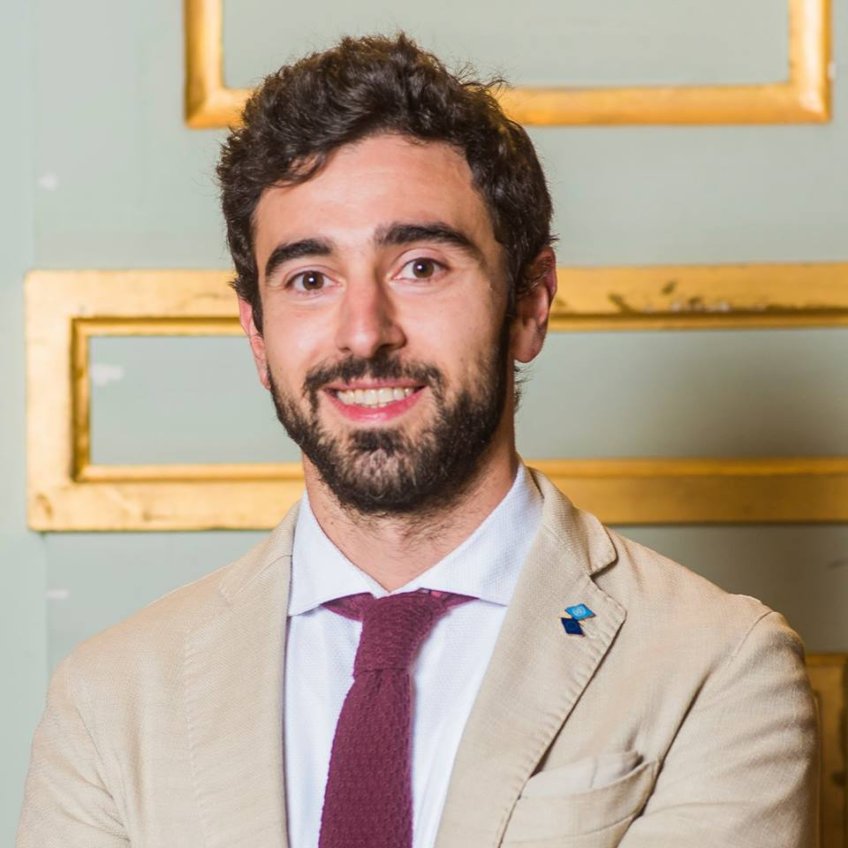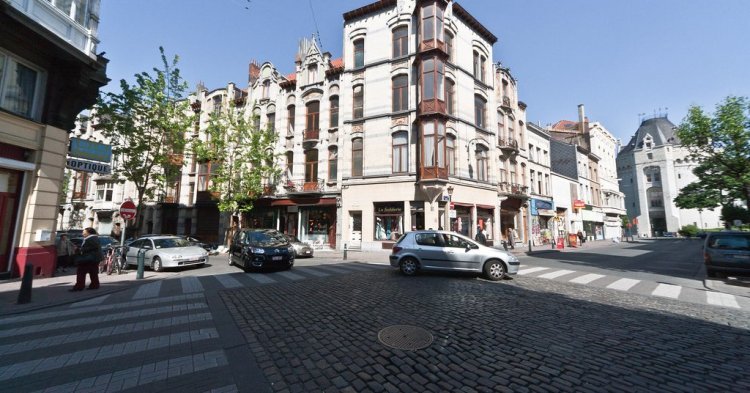Pietro has been supporting citizen activism at European level since he was a teenager through various organisations (including the Italian branch of the Young European Federalists) and is also the founder of several pro-European organizations. He currently works for the European External Action Service, the EU diplomatic corps, where he supports the development of new approaches to build trust and mutual understanding between the EU and citizens worldwide.
In order to help connect the European project with citizens, he ran as a candidate in the local elections in Belgium in 2018 and was elected city councillor in the commune of Saint Gilles.
Let’s turn back to the #EUsolidarity Now group. It all started after the Eurogroup meeting of 26th March, when a sizeable public opinion gap materialized between “Northern Europe” and “Southern Europe” around the sharing of EU resources in the management of the Covid-19 emergency. The widening of this public opinion gap was helped along by some nationalist politicians and media fuelling tensions and dormant prejudices between citizens of different EU countries.
Such a context makes it difficult to understand what the EU is really doing to combat the health crisis and stay informed on EU action in many different fields – including medical research.
Pietro has always believed in a Europe close to its citizens, where real change can only happen if citizens themselves have the chance to be involved in the process. I interviewed him about his new project.
Anita: What caused you to start this initiative?
Pietro: Over the past few weeks, Europe and the world have been confronted with an unprecedented health crisis, which is another testing case for the European Union and its ability to protect its citizens. In order to grow stronger out of this pandemic, Europeans will need to show unity and solidarity, as there cannot be any Union without solidarity.
When the pandemic started, I realised that European cooperation was struggling to take off, as individual Member States started taking uncoordinated measures, not always showing the level of solidarity that we would have wanted to see. However, I soon realised that the situation was more complex and that this fight was not only against coronavirus.
There was an incredible amount of disinformation around the EU response to Covid-19 and an over-exposure of support coming from third countries, often accompanied by insidious anti-European narratives. At the same time, while the European Commission started developing a more ambitious European response to the crisis, some Member States remained reluctant to follow suit.
I felt that, if we wanted to tackle these issues, we needed a grassroots mobilisation capable of pushing heads of state and governments to show more solidarity in the way they were addressing the current health situation. At the same time, it was crucial to also provide factual information on the EU response to the crisis and, most importantly, concrete examples of solidarity across European countries and people.

A lot of people joined the #EUsolidarity Now group quickly. How did you manage to reach so many people in such a short amount of time?
Indeed, the group has gathered 75,000 people in just three weeks and is now the largest pro-European group on Facebook. I think the success is due to the fact that we are trying to provide a space for concrete examples of solidarity among Europeans and European countries. We try to avoid having too many technical discussions or political statements that would only attract the interest of the few of us who are “experts” in European affairs. Also, we try to keep the conversation kind and polite in order to create a “safe space” for interaction, avoiding stereotypes and any kind of bullying (rule number one of the group is: be kind).
I decided to frame the group in this way because I believe that the European project is a project for all European citizens and everyone should be put in a condition to comfortably engage with it, even without being an expert on European affairs: choosing a lens of “solidarity” allows every one of us to relate to it.
Does such a high number of people gathering for a cause indicates something is changing in European public opinion? What is the role of the pandemic in all this?
I think that the high number of people joining the group clearly shows that if “Europe” also means “solidarity”, our fellow citizens are happy to have more of it. It also showed that we are in this crisis together. Indeed, if we are united we can deal with it better. I believe that over the past decades some may have forgotten slightly that the European project was actually started out of solidarity. The Schuman Declaration of 9 May 1950 says it clearly: “Europe will not be made all at once, or according to a single plan. It will be built through concrete achievements which first create a de facto solidarity”.
I hope that this crisis will allow us all to rediscover the importance of solidarity in our Union.
Solidarity is a European value enshrined in the EU treaties. What is solidarity according to you?
To me, solidarity is acting according to the feeling of empathy. Understanding other people’s difficulties, knowing that we could be in their situation and being ready to work together to improve that situation, without seeking anything in exchange.
After the last Eurogroup (9th April) and the European Council (23rd April), do you think something has changed? Are there more hopeful prospects for European solidarity?
I think that the last Eurogroup managed to make important decisions that put the EU on the right track to tackle the current health crisis. One of the key aspects that remains to be fine-tuned is how to tackle the more systemic, long-term effects of this health crisis on the European economy. In this respect, the size and funding of the proposed Recovery Fund will be particularly important. Equally important will be to ensure that whatever solution is finally found, this has to come hand in hand with a strong message of solidarity and unity. Only like that can the European Union grow stronger out of this crisis.
What is the future of the #EUsolidarity Now group?
It will certainly remain a safe space of exchange among European citizens. We will probably try to organise some initiatives connecting Europeans across the continent to give them a voice and share their stories and experiences. For instance, one idea would be to organise short “talk shows” involving people with different backgrounds and professions… to create that “de facto” solidarity that Robert Schuman referred to…
Do you have any ideas? Join us!
You can find the #EUsolidarity Now group on Facebook here.


Follow the comments: |
|
